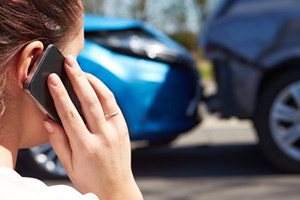When you’re in a car accident, it can be scary and confusing. Who was at fault? Who pays for the car, the medical bills, or lost wages? The injury attorneys with Althauser Rayan Abbarno help answer some common questions.
Who’s at Fault?
After a car accident, the main legal question is, “Who was at fault?”
The at-fault driver is the person who caused the accident. Sometimes, the police report can help figure this out, as it talks about what happened at the accident scene. If a driver didn’t follow traffic laws, they might be at fault.
The Washington State Legislature recently increased the reporting requirements for law enforcement responding to automobile collisions.
Insurance and Accidents
Every driver should have car insurance. The insurance company of the at-fault driver usually pays for the damage. Unfortunately, in Washington, almost 20% of drivers are uninsured. That is why the attorneys with Althauser Rayan Abbarno encourages drivers to carry Personal Injury Protection (PIP) and Un/Underinsured motorist insurance.
What Does Insurance Cover?
Insurance can pay for a lot, including medical bills, car repairs, and even money for pain if you or a loved one gets hurt.
The injured person can sometimes file a personal injury claim against the at-fault driver. But there’s a catch: insurance has policy limits, so they will only pay a set amount.
In these cases, you might have to rely on your insurance or a special type of insurance called “underinsured motorist coverage” to help cover or offset the rest. If the other driver’s insurance can’t pay for everything, this coverage helps pay the rest. It’s like a safety net. It ensures you don’t have to pay for something that wasn’t your fault.
If all else fails, you may have to go to court to ensure you get the money you’re owed.
When Things Get Tricky
Insurance can be complicated. For instance, if both drivers are partly to blame, the rule of comparative negligence might apply. This means both drivers share the fault, and the insurance payout gets divided. Instead of one person’s insurance paying for everything, both insurances might pay a part based on how much each driver was at fault.
Your Car and Insurance
After a car crash, you might also deal with property damage. This means fixing or replacing your car.
Collision coverage in your insurance might help with this. But remember, you’ll need to pay a deductible first. That’s the amount you pay before insurance steps in. You pay the deductible first, and the insurance covers the bigger expenses.
Always check your insurance plan to see how much your deductible is so you’re prepared and know what to expect.
The Takeaway
Every car accident is different, and so are the rules in each state. Always share your insurance information and get that of the other driver if you’re in an accident. If you’re unsure about anything, it’s smart to seek a personal injury lawyer or an auto accident attorney. They can guide you.
For a free consultation with a personal injury attorney in your community, visit www.CentraliaLaw.com or call (360) 736-1301.


Recent Comments